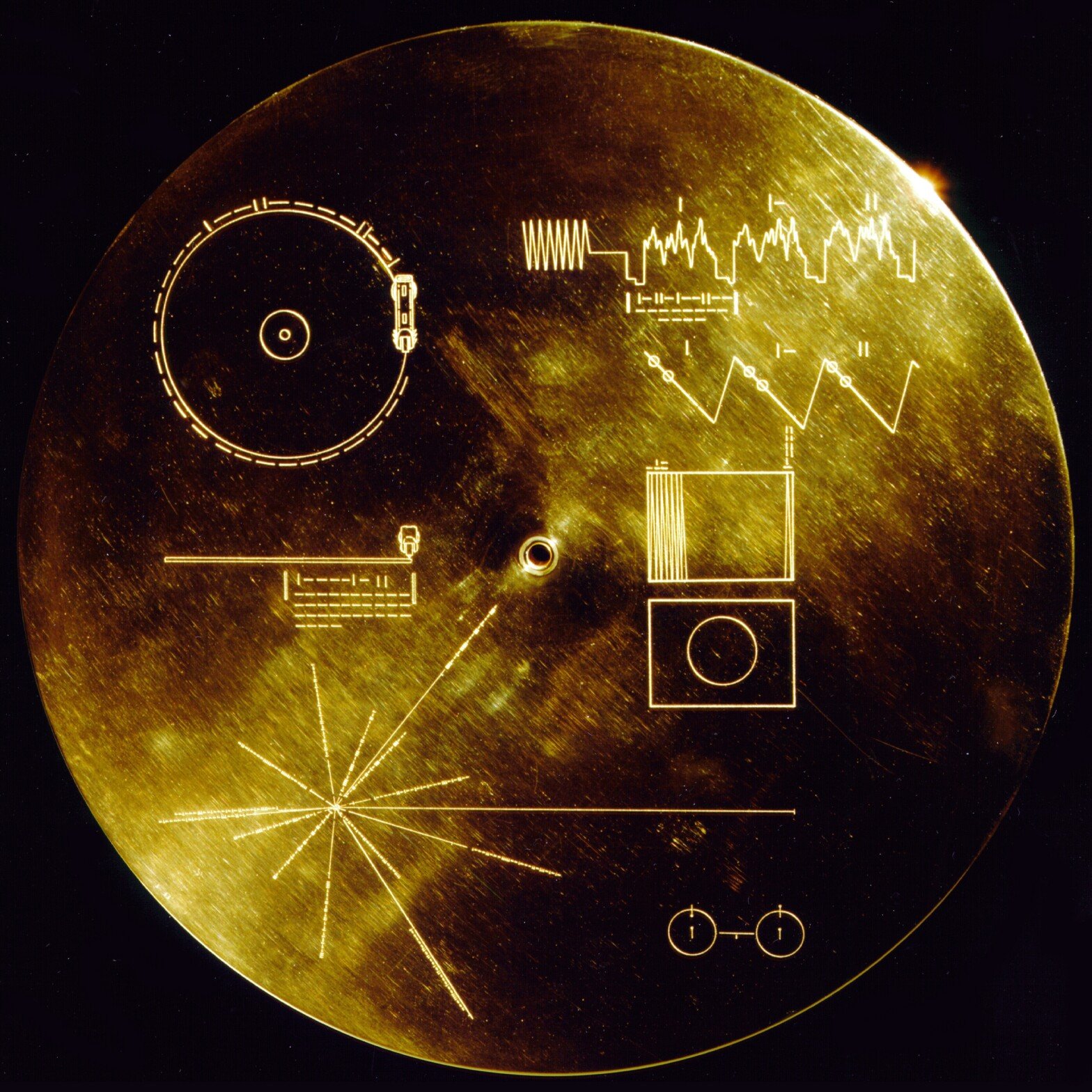
Outcome
I presented to the class a local grocery shopping bag containing three food jars with my own urine, faeces and sperm.
The brief asked us to imagine that we would ‘wake up in this reality’ without prior knowledge and to invent a way of communicating with the ‘new world’.
After researching various ways in which humans have communicated (or at least tried to) with different terrestrial and extra-terrestrial alien cultures, I became interested in communication without words, through exchanges of symbolic objects.
I also thought about the processes an entity without knowledge of social norms would go through when examining its own existence in order to be able to communicate it with others. Hence my attention was drawn to the immediate ‘products’ of my own body and realised that these products are actually containing an immense quantity of information about my existence and are also the end result of the entire evolution process that led to my existence. These DNA based products, if deciphered in their entirety, have the potential to be one of the most comprehensive ways of passing on data about the entire history of the universe.
Briefing session
Actual Brief
Just woke up here in this reality without any memory of previous life.
Come up with ways of communicating: an adjective, a verb and a noun.
Premisses
NB: How do you feel?
VM: Don’t know
NB: What else would you be doing now?
VM: Nothing else
NB: What object are you thinking about right now?
VM: Laptop charger
Information processed by our brains is how we make sense and interact with the world. Information extends beyond ‘usual’ textual objects like books, films, posters etc.
Method
“Work from your intention backwards”
Question: Is there such a thing as unmediated communication — Communication beyond prior knowledge?
If most of the things we perceive, we interpret through cultural filters that were implanted by societal actors throughout our lives, how can we communicate in a culturally unmediated way, is there such a thing?
Research
Communicating through objects
— without ‘explicit language’ (without written or oral transmission of information)
Tribute
A tribute (/ˈtrɪbjuːt/)[1] (from Latin tributum, contribution) is wealth, often in kind, that a party gives to another as a sign of respect or, as was often the case in historical contexts, of submission or allegiance. Various ancient states exacted tribute from the rulers of land which the state conquered or otherwise threatened to conquer. In case of alliances, lesser parties may pay tribute to more powerful parties as a sign of allegiance and often in order to finance projects that would benefit both parties. To be called “tribute” a recognition by the payer of political submission to the payee is normally required; the large sums, essentially protection money, paid by the later Roman and Byzantine Empires to barbarian peoples to prevent them attacking imperial territory, would not usually be termed “tribute” as the Empire accepted no inferior political position. Payments by a superior political entity to an inferior one, made for various purposes, are described by terms including “subsidy“.
 Objects in the “Apadana” reliefs at Persepolis: armlets, bowls, and amphorae with griffin handles are given as tribute.
Objects in the “Apadana” reliefs at Persepolis: armlets, bowls, and amphorae with griffin handles are given as tribute.
Gifts in religion
https://en.wikipedia.org/wiki/Adoration_of_the_Magi#History_of_the_depiction
Diplomatic Gifts
A diplomatic gift is a gift given by a diplomat, politician or leader when visiting a foreign country. Usually the gift is reciprocated by the host. The use of diplomatic gifts dates back to the ancient world and givers have competed to outdo each other in the lavishness of their gifts. Examples include silks given to the West by the Byzantines in the early Middle Ages,[2] the luxury book,[3] and panda diplomacy by the Chinese in the twentieth century.
The Gift Office within the Office of the Chief of Protocol receives all diplomatic gifts on behalf of White House and Department of State officials and maintains records pertaining to diplomatic gifts. This includes all diplomatic gifts received by the President, Vice President, and Secretary of State and their spouses. Working closely with the Chief of Protocol and the staffs of the President, the Vice President, and the Secretary of State, the Gift Office also helps select the gifts presented to foreign dignitaries.

Folk traditions of guest greeting — Bread and salt

Bread and salt is a welcome greeting ceremony in several Slavic and other European cultures and in Middle Eastern cultures. The tradition, known by local Slavic names (Russian: Хлеб-соль, Belarusian: Хлеб і соль; Bulgarian: Хляб и сол; Macedonian: Леб и сол; Croatian: Kruh i sol; Serbian: Хлеб и со / Hleb i so; Polish: Chleb i Sól; Slovak: Chlieb a soľ; Czech: Chléb a sůl; Slovene: Kruh in sol; Ukrainian: Хліб і сіль) was also adopted by three non-Slavic nations — Lithuanians, Latvians (both Baltic) and Romanians (Latin) — all three of which are culturally and historically close to their Slavic neighbours (Lithuanian: Duona ir druska. Latvian: Sālsmaize and Romanian: Pâine și sare). It is also common in Albania (Albanian: bukë, kripë e zemër), Armenia (Armenian: աղ ու հաց, agh u hats), the Jewish diaspora, and the Middle East. This tradition has also been observed in spaceflight.[1][2]

Communicating with extraterrestrial civilisations
https://voyager.jpl.nasa.gov/golden-record/whats-on-the-record/
A Brief History of Poop-Related Art










